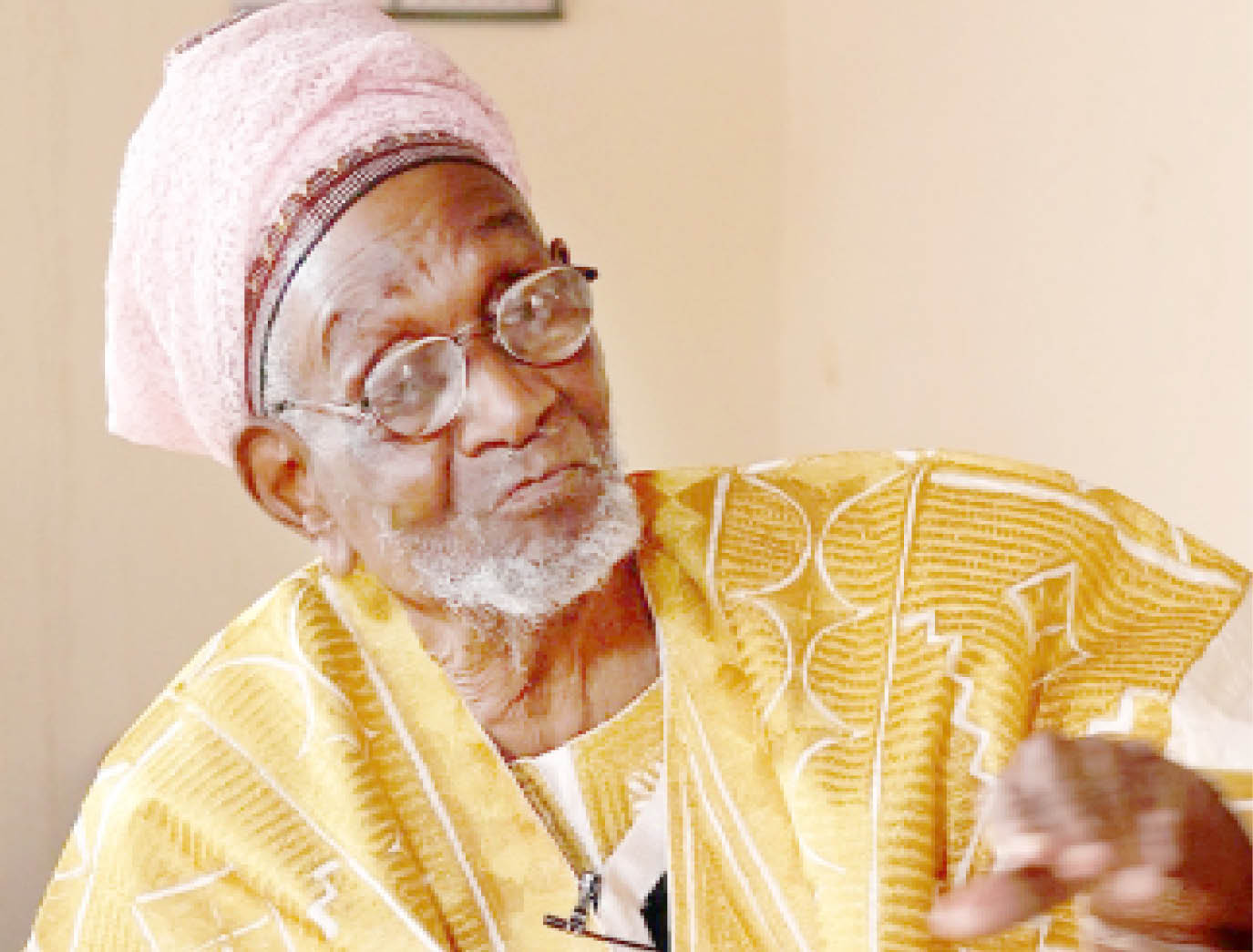On Wednesday last week, the news got around of the death of Ahmadu Kurfi, Maradin Katsina and District Head of Kurfi at the Katsina Teaching Hospital. His funeral prayers took place the next day in Kurfi and was buried in the district head’s palace. His death, at the age of 93, would draw a curtain to the lives of those surviving titans who laid the foundation of our public service. He was a prince. His father was the District Head of Kurfi and his mother was the daughter of Emir of Katsina Nagogo. He had the privilege of Western education and attended all the available elite schools of the time including Kaduna College (known now as Barewa College).
He was also among the first group to have a university education and joined the Northern Nigerian Civil Service as an administrative officer. At a point, he transferred to the Federal Civil Service. He had a tumultuous career serving at some of the most difficult assignments such as the Census Board and the Federal Electoral Commission (FEDECO). He rose steadily in the service up to the post of permanent secretary. His last posting was as Permanent Secretary Ministry of Defence, from where he retired to another form of public service as the District Head of Kurfi, his ancestral home.
I never had the privilege of meeting him even though we were contemporaries as students with his son, Mansur Ahmed, Ciroman Kurfi, at ABU Zaria in the early 1970s. I only came to be better acquainted with the Maradi through his prodigious output as a writer, by then his illustrious civil service career was more or less over.
He has written widely on a range of subjects. For me, his best book would be his autobiography, My Life and Times, which was released about 20 years ago. The book chronicled his life from childhood. The book is also a mine of information on certain important happenings in the lives of this nation, such as the military coups, census, elections, etc.
I had a look at the book again and was touched by what General Yakubu Gowon wrote as a foreword to the book. Ahmadu Kurfi had known Gowon as a student at Barewa College and their paths were to cross later in life. Throughout the tenure of General Gowon as Head of State, Ahmadu Kurfi was a close associate in various capacities. General Gowon wrote:
“Coming from a humble but royal family, Alhaji Ahmadu Kurfi exemplifies humility, dignity, knowledge, and wisdom. His life story is indeed a monument to the virtues of hard work, integrity, and self-discipline. From all accounts, he is indeed his father’s son.
I recollect particularly well when I met him at Barewa College in the early fifties. He was roughly two or three years ahead of me but we developed a respect for one another as we engaged in some sporting and other school activities, especially the inter-house games. Thereafter we parted ways except that his younger brother Sule Kurfi was my classmate and friend and, like his brother, an exceptionally good mathematician.
We met again years later in our respective careers at the Ministry of Defence when I was posted as a young Staff Officer and he was there as senior assistant secretary. We later progressed, each of us in our respective careers, he in the civil service and I in the military, rising to higher ranks and appointments, I as adjutant general of the Nigerian Army and Alhaji Ahmadu Kurfi as deputy permanent secretary in the Ministry of Defence, a period during which we related very closely to one another in our cooperative duties and responsibilities in the Ministry of Defence.
One historic and memorable occasion I recollect was in January 1966 soon after I returned from a course abroad on 13th January 1966 and was posted as commanding officer, 2nd Battalion Nigerian Army at Ikeja.
In the early hours of Saturday 15th January 1966, the nation was rudely awoken to Nigeria’s first coup d’etat. I led some troops into Lagos town the seat of government to deal with the situation. The first and only civil servant that I saw and met was Alhaji Ahmadu Kurfi around the Prime Minister’s house taking details of what happened. He briefed me on the situation up to the time. He would be a useful companion.
I took him along to various installations – the Ministry of Defence, Parliament Building at Tafawa Balewa Square, the Nigerian Broadcasting Corporation in Ikoyi, the houses of the GOC Brigadier Maimalari, Colonel Pam, all in Ikoyi, from there to the Federal Guards at Dodan Barracks and other installations to ensure that all was secure and well in those areas. He was cool, calm and collected all the time, able to satisfactorily answer all my questions and undertake various errands that he was given in the course of our mission.
My admiration for him grew even more for his courage and forthrightness under pressure and he became my main source of contact with senior public servants and politicians who were hiding at the time. He again showed courage during the conduct of the 1973 Census exercise and exhibited excellent qualities of leadership as the boss of Nigeria’s Federal Electoral Commission (FEDECO), which he headed.”
It is a fitting tribute. Allah ya ji kanshi da rahama.

 Join Daily Trust WhatsApp Community For Quick Access To News and Happenings Around You.
Join Daily Trust WhatsApp Community For Quick Access To News and Happenings Around You.

